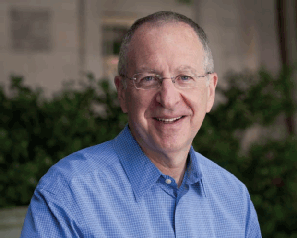As the new academic year beckons, I look back at the last one with gratitude to all of you in the alumni community for the vital part you played in helping to guide Cornell through troubled and turbulent waters. I've been asked by many of you, as well as parents, faculty, staff, and students, about the things that sustained me during this difficult year. I'm pleased to share some thoughts, beginning with the disclaimer that I have no special expertise for dealing with the kind of emotional roller coaster that was the 2009-10 academic year. But my journey was lit by seven lights—illumination that made the year, in the end, a positive and meaningful experience.
 First, our wonderfully strong, bright, and optimistic students showed me the way forward. From the "Lift Your Spirits" event on the Arts Quad following our cluster of suicides, to the chalk inscription "Life Is Full of Wonder" on a walkway, to the exuberance of Dragon Day and the celebration of our athletic successes, to our many individual and group conversations, they reminded me why we are here and that learning and teaching flow in both directions.
First, our wonderfully strong, bright, and optimistic students showed me the way forward. From the "Lift Your Spirits" event on the Arts Quad following our cluster of suicides, to the chalk inscription "Life Is Full of Wonder" on a walkway, to the exuberance of Dragon Day and the celebration of our athletic successes, to our many individual and group conversations, they reminded me why we are here and that learning and teaching flow in both directions.
Second, listening to jazz, classical, and other musical genres made me calmer, more positive, and more joyous. Limited as it has been by my schedule, making music with Paul Merrill, the Gussman Director of Jazz Ensembles, and with our talented students, is at once exhilarating, terrifying, and humbling.
Third, reading, whether nonfiction, current events, or poetry, sustains me each day, if even for only a half-hour. Last year, among many other books, I especially enjoyed Jonathan Phillips's Holy Warriors: A Modern History of the Crusades, the novel The Professional by the late Robert B. Parker, and several issues of Modern Haiku magazine.
In today's difficult economy, our students (and their parents) often ask me what the "best" majors are, and sometimes question the value of a broad liberal arts education. Understandably, they want to spend their time and tuition dollars learning material that will have immediate applicability in the "real world." Yet for me, and for so many others, music and literature are not only valuable in their own right, but are ways to connect with others, expand horizons, and bring joy into life. In this sense, a liberal arts education may be the most valuable and meaningful education of all.
Fourth, and related to reading, is the joy of learning, even at my advanced age. Under the guidance of Senior Lecturer Munther Younes, I've continued my maddeningly slow but steady study of Arabic. Our third commencement ceremony at Weill Cornell Medical College in Doha, Qatar, gave me the opportunity—and challenge—of working with Munther to develop a portion of my remarks in Arabic. As with musical performance, it was exciting and frightening. But it also reminded me of the joy of discovery—something that animates our faculty in their research, scholarship, and creative work, and something we hope to infuse into the education of all our students.
Fifth, I continue to learn more about the faculty and staff. Last year, I began to attend departmental faculty meetings, focusing on undergraduate education and augmenting what I learned about research from similar faculty meetings a couple of years ago. In addition, I have periodic meetings with the Employee Assembly and, with their sponsorship, participate in events for staff members. Our talented and devoted faculty and staff make Cornell what it is and what it will be.
Sixth, my monthly online conversations with alumni around the world, conceived by our colleagues in Alumni Affairs and Development and University Communications, have brought me "face-to-voice" with many thoughtful and experienced alumni. You facilitated my learning and challenged my assumptions about our university and the world beyond. I thank all of you for your wisdom.
Finally, I have depended on my family and friends for counsel, advice, and—most of all—support. Those close to me created a haven in which it was safe to be confused, angry, terribly sad, and ultimately confident in each decision, each chosen path. Although I did not expect it, some of my closest friends have turned out to be members of our Board of Trustees and Board of Overseers, whose wisdom and encouragement were bulwarks against the problems we faced together.
I ended the year with an even stronger appreciation of the great gift of being a Cornellian, of being your colleague and friend. Here's to our new year together!
— President David Skorton
david.skorton@cornell.edu


